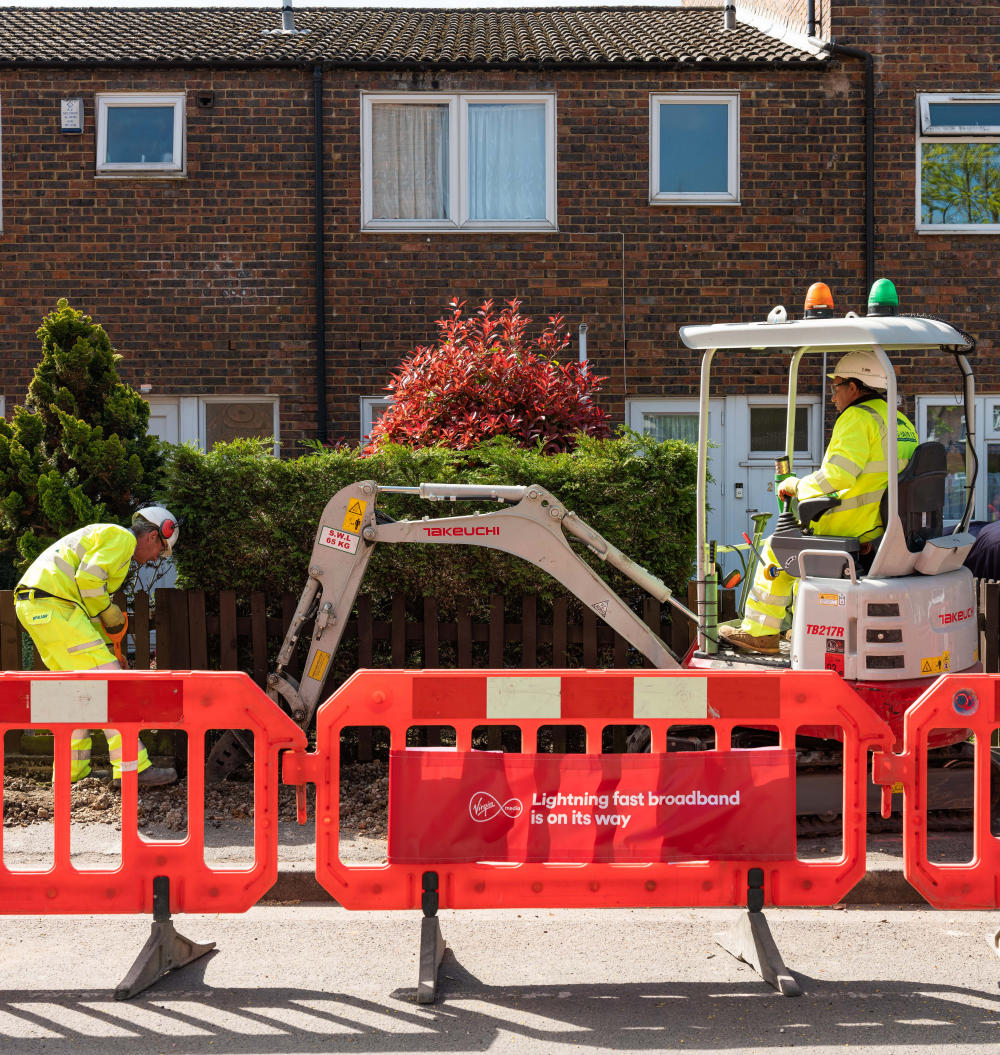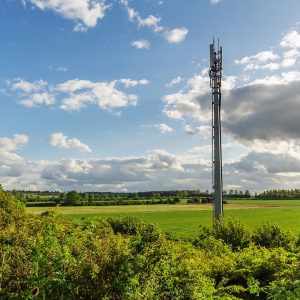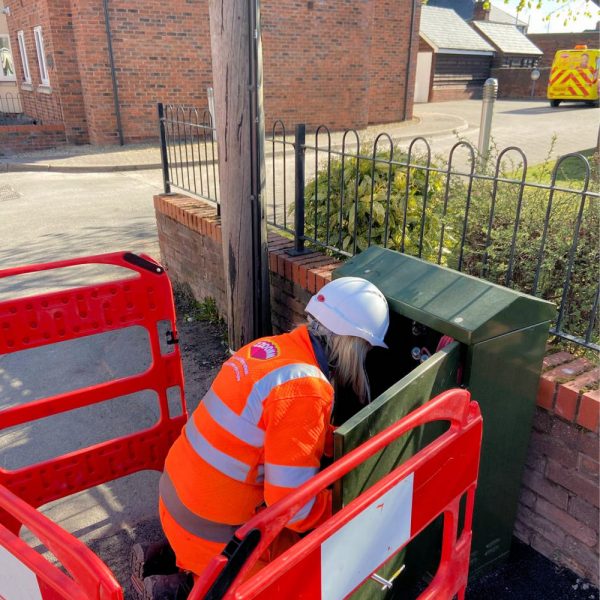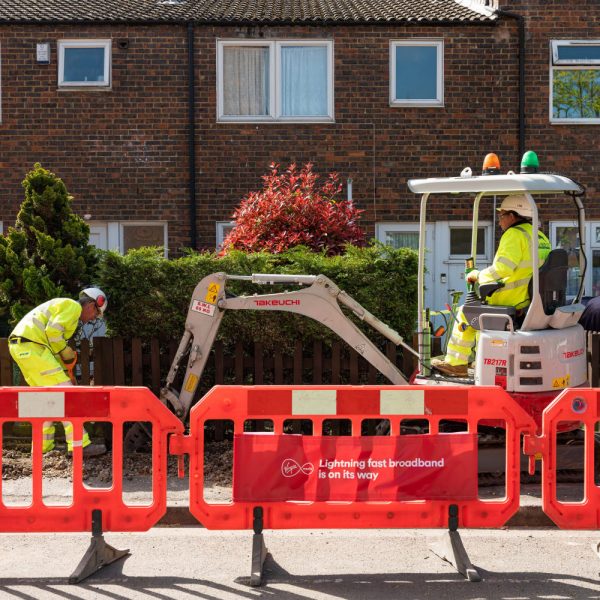Zen Internet Talks Ending the Fibre Tax and Working with Altnet ISPs

Question 2. At the time of writing this, Zen has unbundled around 400 of BT’s exchanges (55% UK coverage) and a further 50 are expected to be added before the year is out (65% coverage). Going forward we understand that there’s an ambition to do this for 987 exchanges by around 2025.
Can you tell us a bit more about why you’re doing this and what advantages unbundling like this will have for your FTTP and wider Ethernet line of products etc.?
Richard’s Answer:
We have 450 exchanges live today (the 50 that were in progress have all now been delivered), and our target is to reach 700 exchanges by the end of 2020. That will give us around 80 per cent coverage of the UK for fibre broadband. This investment will give us the big advantage of being able to compete on a level playing field with our biggest competitors. Without these new exchanges we just couldn’t achieve the price points to do that. It also gives us more control of our network so we can continue to build on our reputation for reliability and exceptional service. On top of this, it allows us build upon our already successful wholesale business.
Unbundling like this gives us benefits across both our broadband and Ethernet product portfolios. We sell significantly more on-net Ethernet circuits compared to off-net circuits due to the better pricing we are able to achieve. In broadband, we charge the same price on-net and off-net, and our on-net circuits cross-subsidise our off-net circuits. So the greater our on-net footprint, the better our commercial model will be as we scale up. Unbundling gives us choice too – we can choose to be an early adopter because we do not have to rely on a wholesale provider.
Question 3: Last year Zen spoke of their desire to become a £100m business within 3 years, rising to £150m by 2023 and then £250m within 10 years. What sort of network and strategy changes do you envisage will need to be made in order to achieve the latter target (we assume the £100m goal is a fairly safe bet since Zen’s last turnover was £71m)?
Richard’s Answer:
A key theme in terms of our network strategy is going to be the amount of bandwidth that we will require. We will need to move from a network carrying 100’s of gigabits per second to one with the capacity to carry several terabits/sec. We are currently designing this new network.
Although Moore’s Law strictly refers to the number of transistors on a chip, it is widely used to refer to the exponential increase in compute power, memory & storage, and bandwidth that we have seen since the birth of computing, and will undoubtedly see for the foreseeable future. A typical Zen customer uses about 2% more bandwidth each month – so around 25% more bandwidth each year.
Our expansion plans therefore involve us going to around 700 fibre parent exchanges and installing metro, regional and national networks to enable both superfast and ultrafast connectivity for our customers. Based on what we know this will place us in the top five broadband networks in the UK.
Regarding our commercial strategy, our goal is to move from being a niche premium player to becoming a true challenger brand to the biggest names in our industry, whilst continuing to build upon our reputation for service quality and reliability. Our aim is to be a conscientious challenger – doing the right thing for our people, customers, and supplier relationships based on our people-first values.
My long-term dream goal is that one day the broadband “Big 4” will be known as the “Big 5”, with Zen being the fifth member of that group.
Question 4. Much has been said about the future of Openreach’s hybrid fibre G.fast technology, which was originally planned to cover 10 million premises by the end of 2020 and was later reduced to around 5.7 million.
Some indications we’ve seen even suggest that the roll-out may be scaled-back yet again in order to better focus on “full fibre” (FTTP) as the future. As one of the first providers to sell such products, what are your thoughts on G.fast and its future?
Richard’s Answer:
The beauty of G.fast compared to FTTP is the speed and convenience of deployment. Rather than having to run a new fibre to each individual building, which is an enormous amount of work, G.fast can be deployed much more easily with a cabinet upgrade.
For those customers who are close enough to the cabinet, G.fast has the capability to supply their broadband needs for the next ten years and beyond. You have to therefore ask whether it’s worth the extra cost and effort to deploy full fibre, or whether to wait until those old copper cables truly run out of steam.
The Government seems hooked on full fibre and not at all interested in G.fast. I’m sure that this has been influential in Openreach’s decision to scale up FTTP and scale down G.fast.
My conclusion on G.fast is that it’s a worthy technology that has the capability to deliver Ultrafast speeds to a significant proportion of the UK for many years to come. However, with so much focus currently on full fibre, I fully expected Openreach to further scale back its G.fast plans in favour of FTTP, and this now appears to be happening.
Question 5. Earlier this year Cityfibre lost a Judicial Review of the UK advertising watchdog’s decision (or at least its interpretation of related research) not to clamp down on ISPs that advertised slower hybrid fibre (FTTC / VDSL2 / Cable etc.) services as “fibre”, “fibre broadband” or “fibre optic broadband” etc.
The operator had wanted only true “full fibre” (FTTP) providers to have the right to use such terminology in their adverts. Do you think the court made the right decision and what would you have done differently, if anything?
Richard’s Answer:
Yes, I think the court made the right decision. The important thing for the consumer is that “Fibre Broadband” – e.g. FTTC – is significantly faster than standard / copper / ADSL broadband, which it is for the vast majority of people.
I can see Cityfibre’s motivation, but the benefit of them being successful would have been Cityfibre’s benefit rather than a wider benefit for consumers.
Flick over to the final page 3 for more..
Mark is a professional technology writer, IT consultant and computer engineer from Dorset (England), he also founded ISPreview in 1999 and enjoys analysing the latest telecoms and broadband developments. Find me on X (Twitter), Mastodon, Facebook and Linkedin.
« Kepler’s Nano LEO Satellite Delivers Ultrafast Broadband to Arctic
Gigabit Capable Full Fibre UK Broadband Cover Passes 10% »
Latest UK ISP News
- FTTP (5525)
- BT (3518)
- Politics (2541)
- Openreach (2298)
- Business (2264)
- Building Digital UK (2246)
- FTTC (2044)
- Mobile Broadband (1975)
- Statistics (1789)
- 4G (1666)
- Virgin Media (1621)
- Ofcom Regulation (1463)
- Fibre Optic (1395)
- Wireless Internet (1390)
- FTTH (1382)



























































The only certainties in life are death and taxes.
I have always been a great admirer of Zen, never heard a bad word about it, unlike a lot of other ISPs. This interview proves they are fantastic. Scrapping the fibre tax is essential if we are to progress, many have been campaigning for years for this. His approach is spot on. I wish he was running openreach…
Regarding online safety, there is not much government can do, they won’t employ clever enough people, they tend to lock them up instead. GDPR is a prime example of trying to regulate, now one can’t hardly do anything to help people, yet the spammers continue to harrass folk with emails, phone calls and junk mail. I tried to report a phone line down to Sky the other day, and they wouldn’t even test the line unless I knew the customer’s password. The elderly lady in question didn’t even know it herself… so because of GDPR we got no further. Even escalating the call to the line manager wouldn’t let us report it. Madness.
Well done Richard and Zen, keep rockin. As you rightly point out, competition is King, and the Altnets are saving us. If it wasn’t for Virgin and the early ones we’d still be on dial up.
Or we would all have fibre if Maggie hadn’t stopped it.
“Or we would all have fibre if Maggie hadn’t stopped it.”
This is ancient past. Let’s stick to the facts here: Nobody has prevented your beloved BT doing fibre now for ages.
Troll record – 1hr 20min.
GNewton is right though.
We all know that we are heading towards 1Gbps (and eventually, more) over fibre, so why doesn’t BT focus it’s efforts (and money) on this?
Also just because BT once proposed to fibre up the whole country, doesn’t mean they would have actually done it to literally 100% coverage. I bet some areas would be waiting even now.
Is there any country in the world with 100% fibre coverage?
Thatcher has been dead for over a decade and nothing was there to stop BT near enough a decade before that. I guess some BT juice drinkers will just blame anything.
EDIT Thatcher has been dead for over HALF a decade.
Altnets have had since 1985 to fibre all the UK. Why did VM’s previous cable companies give up in many areas 20? years ago?
I think you are missing one key fact. BT wanted to roll out a UK Fiber network as long as it maintained its monopoly.
We can only speculate on what they would mean for options, feature sets and price if BT was still the only provider in the UK. It’s not like they had a good track record up until that point. Don’t forget that between 1965 and 1982 BT’s view of innovation was the Trimphone for its consumer base.
“Altnets have had since 1985 to fibre all the UK. Why did VM’s previous cable companies give up in many areas 20? years ago?”
1. Home internet or the world wide web did not exist in 1985.
2. Virgin Media did not exist until 2006, so how they have had 20 years i guess only you would know.
3. Most important… You really are dumb.
BT the useless company and followers that like to blame others for it deficiencies.
“1. Home internet or the world wide web did not exist in 1985.”
If BT thought there was an advantage to fibre at that time or could see the future advantages, then why not the cable companies too?
“2. Virgin Media did not exist until 2006, so how they have had 20 years i guess only you would know.”
Read again. “Why did VM’s PREVIOUS [emphasis mine] cable companies give up”. Any one of the cable companies which existed pre-Virgin Media could have rolled out fibre but none did. Virgin Media could have been rolling out fibre for the last 13 years but has actually done very little, less than BT even!
“3. Most important… You really are dumb.”
Pot/Kettle.
“If BT thought there was an advantage to fibre at that time or could see the future advantages, then why not the cable companies too?”
You would have to ask the facts who seems to think the internet was around back then.
“Read again. “Why did VM’s PREVIOUS [emphasis mine] cable companies give up”. Any one of the cable companies which existed pre-Virgin Media could have rolled out fibre but none did. Virgin Media could have been rolling out fibre for the last 13 years but has actually done very little, less than BT even!”
As stated VM did not exist until 2006. If you and the facts are referring to why Telewest did not do anything to forward the internet in this country, that argument is also void. If you want to know who did what and who was first to do what it goes like this..
Pipex 1992 First dial up internet connection in the UK.
Telewest (who you and he may be referring to) First ADSL connection in March 2000.
Easynet group first ADSL2/+ connection end of 2004 quickly followed by BE unlimited in 2005
FTTC first test performed by lincs in partnership with Oracle, BT then sniffed in on the action and signed a deal with them in 2008 to develop the tech further.
Oh and the kicker…
FTTP
2008, H2O Networks, rolled out Fibrecity, offering Residential FTTH in Bournemouth, Northampton and Dundee.
2011 KCOM begins in Hull and East Yorkshire network.
2011 Hyperoptic launched a 1Gbit/s FTTH service in London, today it is in Manchester, Birmingham, Eastbourne, Glasgow and Sheffield.
Meanwhile….
In 2009, BT announced that its internal network division, Openreach, would connect 2.5 million British homes to ultra-fast FTTP by 2012.
It failed.
““3. Most important… You really are dumb.”
Pot/Kettle.”
Feel free to dismiss actual facts and history.
Ill link to where it all came from if you are stupid enough to try to.
Your history is irrelevant as it is all very Internet centric, which we all know wasn’t used by consumers in 1985.
Fibre could very well have been used for TV and radio delivery for example, which would have suited the cable companies well.
It’s likely we would have seen online services similar to CompuServe, AOL etc too (though obviously they would have been fairly quickly replaced by Internet access).
Fibre is also less of a maintenance headache and a lot of costs would have been saved by now.
Also, Telewest was not the only cable company before Virgin Media. NTL & Telewest merged to form Virgin Media but there were many others before that happened: https://en.wikipedia.org/wiki/Timeline_of_cable_television_in_the_United_Kingdom
“Your history is irrelevant as it is all very Internet centric, which we all know wasn’t used by consumers in 1985.”
Of course, that is the point is it not. How history is irrelevant to who did what in internet networks is the entire point.
“Fibre could very well have been used for TV and radio delivery for example, which would have suited the cable companies well.”
No company anywhere in the world used or planned to use Fibre for home TV or Internet back in 1985. Be it BT or cable companies.
“Fibre is also less of a maintenance headache and a lot of costs would have been saved by now.”
Again nobody anywhere had planned any nationwide fibre network back in 1985.
TV networks has nothing to do with it.
“Also, Telewest was not the only cable company before Virgin Media. NTL & Telewest merged to form Virgin Media but there were many others before that happened:”
The majority of which had nothing to do with any type of telecoms network. TV which was the focus of everything up until around 1990 was in the most part small regional trials, volunteers or local government funded projects. All TV of that time was also low bandwidth so the thought of even laying expensive at the time fibre cable rather than a cheap coax is utterly ridiculous.
Quite what your point is i dunno an Altnet was the first to do FTTP, not BT, not cable and they did it because they wanted to do it a whole decade ago and several years before BT.
BT have done NOTHING first in this country NOT TV, NOT phone, NOT internet and with regards to the internet, to suggest others should do even more like lay fibre networks before BT when BT have done nothing first is frankly hilarious.
I cannot be bothered to argue with your idiotic ramblings, even the bits which are provably false.
Adios.
“I cannot be bothered to argue…”
Thank you for your time.
🙂
@Roger – BT in its current form did not exist until 1984. Until then a nationalised industry.
You may not be aware of telecomms innovation between 1965 and 1982 like Prestel, single mode fibre and many patents.
Your GDPR example is nothing to do with the GDPR. You would have received the same response in the past under the Data Protection Act.
If Virgin allow other ISPs to use their network does that mean we can finally use a different modem instead of Virgin’s hub?
no, they won’t allow it due to hack the cable broadband for free
I imagine they will do as Openreach have and provide a powered NTE / modem.
Ignore Lee. DoCSIS security has come quite a long way.
The bit that Richard is missing with the Gfast conversation are the gaps in the coverage.
It is quite possible, as on my street, that I have fantastic Gfast and the guy who lives next to the pod can’t get it because the line loop back to him from my the pole outside the house. How are those gaps filled? If you start doing micro footprint fiber deployments This gets super expensive and by the back of my fag packet costs nearly as much doing a whole street to the pole/chamber.
So I would counter that and say that Gfast makes sense where the coverage from the PCP is even and where the copper lines are good and in the main short. I suspect *total guess* that OR have used the know line properties taken with uptake rates on 76Mbs packages to select relevant PCPs for GFast.
Although I suspect the solution set for the above is getting quite small.
For me, the most I can get from VDSL2 at ~750m from the cabinet is 7.5/45 Mbps – sufficient for many things, but hardly ideal. G.fast will do nothing for me.
Meanwhile, Virgin can do 500Mbps, and probably 1Gbps in the mid-term. Without fibre, Zen will probably not get my service and I will be worse off too if I want a higher level of service. (Currently I have both, but I expect to drop that soon.)
If there is a fibre tax it should be levied equally on everyone using fibre to get to their distribution nodes – including Virgin and cellular providers. But realistically, the best approach might be not to tax at all.
It’s hard to really listen to what he says.
One of the longest standing ISPs, but they have such an insignificant customer base. Year after year of failure to grow that base. Undoubtedly they have a gold plated reputation, but seem happy to just stick with their loyal customers who pay over the odds.
Nothing wrong with running a profitable business like they are?
They don’t need to impress you.
Some people like quality over price.
What Richard has achieved with Zen is no less than remarkable. I respect them greatly. But I think the Altnets have changed the broadband market in the UK considerably.
Bandwidth usage is increasing at a faster rate. The popularity of streaming services combined with better infrastructure has led to a significant jump in bandwidth.
Most Openreach CP’s / ISP’s have only been able to sell 80Mb broadband so their usage was always capped. Now that fibre broadband of up to 1Gb is increasingly available bandwidth usage is increasing.
I agree with the statement about fibre tax it should be abolished permanently. I see this as a tax on innovation as it makes it to expensive to build R&D networks etc.
However comments about GFast are a little old fashioned in my mind. It is simply another sticking plaster. Fibre is considerably more reliable and faster.
We have already seen a lack of support for the Openreach 500Mb and 1Gb broadband solutions and that is because they are expensive. Not because the tail circuits are costly but because an ISP needs to upgrade their entire infrastructure nationwide or buy from wholesale (very expensive).
Zen will need to significantly upgrade their network to roll-out support for these higher speeds. They obviously think they are not required. But I think that will prove an incorrect assumption.
However think of the likes of talk talk and Sky with millions of customers. Their networks will need significant upgrades.
Now that Openreach have announced tail costs for 220Mb at the same price for 80Mb circuits and further drops in 500Mb and 1Gb tails I suspect the ISP’s that can handle these bandwidths will start to do well.
So we have some interesting times ahead for ISP’s and I expect we will start to see some consolidation in the market and some new dominant players.
Too 🙂
That is a very interesting analysis.
Differentiating factors used to be big with ADSL quality and service level.
With FTTP SLA, uncontended bandwidth levels will, amongst other things be decisional factors for some.
Sure the landscape will change. Sure it will require investment. And for sure the innovators will stay on top.
Lets see if Richard can innovate to stay with the FTTP challenge. Hope so: they do provide a good solution for some situations.
Ive been reading that Zen are expanding does this mean they will become another plusnet.. growing huge and offering cheap bb and then poor customer services ?